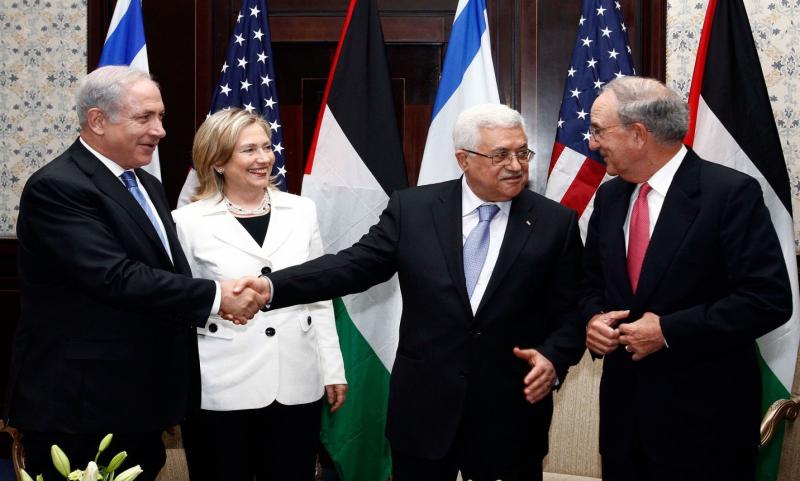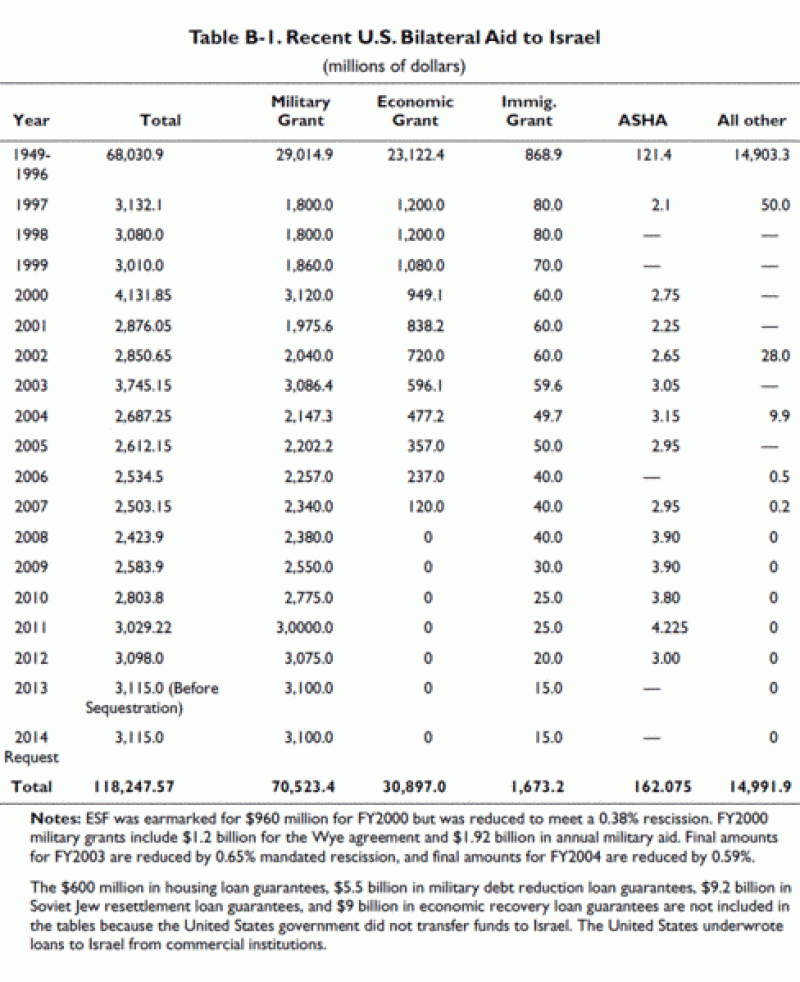Recent Israeli-Palestinian Relations: Intransigence Worsens, Despite Continued Efforts

By Tophie FIsher
As one of the most iconic and perpetual conflicts in the past century, Israeli-Palestinian relations in 2016 remain mired in the same caustic struggle that characterized their nascency. Despite repeated calls for an end to the conflict by leaders of both sides, in addition to those of the international community, the various protagonists seem as far as ever from reaching anything resembling a lasting peace.
But who is to blame? The leaders of both Israel and Palestine – Prime Minister Benjamin Netanyahu and President Mahmoud Abbas, respectively – have wagged their fingers at one another with alarming frequency of late. This article aims to provide, in as much as is possible, an objective overview of both governments' de facto stances and how those stances are sometimes undermined by elements from within. These may contradict the self-stated positions each leader professes, focusing rather on their actions.

President Mahmoud Abbas meets with then U.S. Secretary of State Hillary Clinton and Israeli Prime Minister Benjamin Netanyahu in Sharm al-Sheikh, Egypt, on 14 September 2010. Photo by US Department of State, Wikimedia Commons, Public Domain.
Recent Developments
In a Haaretz article dated 8 September 2016, diplomatic correspondent Barak Ravid reported that Russian President Vladimir Putin was attempting to arrange a meeting between Abbas and Netanyahu; however, while both men “agreed in principle” to the meeting, no date has yet been set. Despite this ostensive movement towards negotiation, the proposed meeting is more likely the continuation of political gamesmanship intended to bolster public approval at the expense of meaningful talks. Such an environment is not conducive to forging compromise. Dr. Donald Sylvan, Professor Emeritus of political science at the Ohio State University, corroborates this latter point by arguing that any prospects for negotiations in the near future seem distant at best. He cautions against overoptimism, noting that there is
“every incentive for each side to portray themselves as willing to talk, . . .[but] minimal political incentive within each of the two groups of political leaders to actually compromise.”
-Dr. Don Sylvan, Professor of Political Science, Ohio State University
In short, the status quo is preserved. There is a generally divisive political environment surrounding both leaders. The tension isn't simply between Israeli and Palestinian leaders, but also between their own governing coalitions. For Israel this is perhaps best typified by the aftermath of the March 2015 Knesset elections, in which Mr. Netanyahu first secured reelection as Prime Minister and then cobbled together a coalition of 61 seats – the minimum number required to carry a majority within the Knesset [1][2]. While ostensibly this may not have been cause for alarm, it can be argued that the makeup of Mr. Netanyahu’s coalition – in addition to the more recent controversial appointment of Avigdor Lieberman as Defense Minister – does not augur favorably for negotiations with Israel’s Palestinian counterparts [3]. Perhaps fearing he would not successfully form a coalition, Mr. Netanyahu leaned further to the right politically by giving concessions to more conservative groups such as Jewish Home [4]. The tacit conclusion one then draws is that Mr. Netanyahu’s ability to compromise with Palestine, regardless of his sometimes conciliatory rhetoric, will be constrained by the more conservative elements within his government for whom negotiating with Palestine is anathema. Underscoring this point is a recent Haaretz article by Yossi Verter, detailing an attempt by the majority of Mr. Netanyahu’s Likud party to enact a law bypassing High Court of Justice rulings, which dictate the evacuation of Israeli settlements built upon land privately owned by Palestinians. Not only does Verter describe the move as Likud’s “moral, constitutional and political nadir,” but also that even were such a law to be enacted it would swiftly be ruled as unconstitutional by the High Court, and therefore rendered moot [5]. There is little, then, to constrain the Israeli government from continuing to pursue its increasingly right-wing agenda; indeed, Mr. Netanyahu's coalition seems bent on fostering an "Israel for Israelis" at the expense of Israel's significant Palestinian minority.
This is not to suggest that Mahmoud Abbas’ government has been free of such tension. Since assuming the presidency in 2008, Mr. Abbas has been perpetually embroiled with Hamas, the main political opponent for his own party, Fatah. Tensions between the two came to a head following Hamas’ victory in the 2006 parliamentary elections, which led to a spate of violence and ultimately the splitting of the then unity government [6]. There have been attempts at reconciliation between the two (at least four since 2008: the Sana’a Declaration of that year, the 2011 Cairo Agreement, the 2012 Doha Agreement, and the Beach Refugee Camp Agreement of 2014), though all have ended in failure [7][8][9][10]. The most recent of these reconciliation attempts has given rise to numerous differences between Fatah and Hamas, which journalist Rasha Abou Jalal states include the “managing [of] crossings with the Gaza Strip, holding presidential and legislative elections,” et al [10]. The constant strife between the two parties is particularly problematic when one considers that Fatah presides over the West Bank while Hamas in turn oversees the Gaza Strip, a configuration that arose from the ashes of the Battle of Gaza in 2007 [11]. The divide then becomes not only figurative but also quite literal, considering the territorial incongruity between Gaza and the West Bank, thus making a bridge between the two factions an onerous task and therefore the idea of a unified Palestinian government all but impossible. Further, the Palestinian Authority's perpetual antognism towards Israel is a significant roadblock in terms of that country's willingness to recognize the PA as a legitimate partner in negotiations.
Israel and the US
When discussing Israeli-Palestinian relations in 2016, one must not downplay the role of the United States, and in particular the relationship between Mr. Netanyahu and US President Barack Obama. To say that the two leaders’ dealings with one another have been strained would be an understatement. Indeed, New York Times journalists Peter Baker and Jodi Rudoren have gone so far as to characterize the relationship as “burdened by trust [and] divided by ideology,” and that both men have been “talk[ing] past each other for years.” Perhaps the breaking point followed Mr. Netanyahu’s controversial address to the US Congress in 2015, where he decried Mr. Obama’s pursuit of a deal with Iran to curb that country’s nuclear ambitions [12]. While Mr. Netanyahu’s address served to further the divide between himself and Mr. Obama, it also “drove a wedge” between Democrats and Republicans, for whereas Republicans chafed at the idea of a nuclear deal with Iran, Democrats asserted that Republicans had arranged for Mr. Netanyahu’s appearance independent of the White House in an attempt to undermine the president’s position [13]. Despite the strain in their personal relationship, the governments of Obama and Netanyahu are said to be close to finalizing a military aid package that would be the “largest in American history” [14]. This is the continuation of a commitment made just after Camp David between the governments of Egypt, Israel, and the U.S. [15].
Figure 1:

Table from an April 11, 2013 Congressional Research Service report titled "U.S. Foreign Aid to Israel". By Jeremy M. Sharp, specialist in Middle Eastern Affairs, Wikimedia Commons, Public Domain.
Forging Ahead
Despite President Obama’s recent address to the UN, in which he pleaded with both Israelis and Palestinians to end the conflict and finally cooperate with one another, the coincidental rise in acts of violence within Israel may extinguish any of the optimism that Mr. Obama’s speech was intended to inspire [17]. Further, Mr. Obama himself is facing new criticism over the aid package discussed above, as is Prime Minister Netanyahu. Mr. Obama is charged by some Palestinians and Israelis for serving as a “patron” to the occupation by increasing the amount of aid the US will provide to Israel [18]. Conversely, Mr. Netanyahu’s critics suggest that due to his treatment of the Obama administration, the final version of the aid package was less than it could have been [19]. Meanwhile in the occupied West Bank and Gaza Strip, the election that was supposed to take place on 8 October has been suspended, with both Fatah and Hamas blaming each other for the election’s cancelation [20]. Such divisiveness raises the specter of the conflict of 2007, the result of which was discussed earlier.
An intriguing development is Israel’s pivot towards some of its Arab neighbors. Such a move could portend an attempt by Mr. Netanyahu to bring other Arab states to the table, thereby strengthening his position over the Palestinian Authority obliquely through the PA's Arab neighbors, and thus increasing the prospects of peace negotiations that favor Israel [16]. This is indicative of the cognitive disconnect plaguing both sides, in that overtures for peace are undermined by actions and policies which directly contradict the stated policy aims of Messeurs Abbas and Netanyahu.
Considering the way matters have been evolving recently, it is difficult to see any movement towards a resolution in the near term. With intransigence on both sides and little more than lip service paid by the international community, one of history’s most enduring conflicts is likely to continue unabated. While there are some signs of optimism (e.g., Mr. Abbas’ and Mr. Netanyahu’s professed desire to meet),the conciliatory rhetoric doesn't seemed to be backed by likeminded action. In light of this apparent deadlock, meaningful negotiations are very unlikely.
[1] http://www.jpost.com/Israel-Elections/Netanyahu-declares-victory-in-election-Herzog-says-Likud-celebration-is-premature-394235
[2] http://www.timesofisrael.com/in-the-11th-hour-netanyahu-finalizes-61-strong-coalition/
[3] http://www.npr.org/sections/parallels/2016/05/26/479561175/heres-why-israels-new-defense-minister-is-so-controversial
[4] http://www.nytimes.com/2015/05/07/world/middleeast/netanyahu-israel-coalition-government.html?_r=0
[5] http://www.haaretz.com/israel-news/.premium-1.742802?=&utm_content=%2524sections%252F1.742802&utm_medium=email&utm_source=smartfocus&utm_campaign=newsletter-daily&utm_term=20160919-10%253A09&ts=_1474287491436
[6] https://www.ndi.org/files/2068_ps_elect_012506.pdf
[7] http://uk.reuters.com/article/uk-palestinians-yemen-deal-idUKL23831120080323
[8] https://www.theguardian.com/world/2011/apr/27/hamas-fatah-agree-government-deal
[9] http://www.aljazeera.com/news/middleeast/2012/02/20122610416298264.html
[10] http://www.al-monitor.com/pulse/originals/2016/03/palestinian-hamas-fatah-reconciliation-doha.html
[11] http://news.bbc.co.uk/2/hi/middle_east/6748811.stm
[12] http://www.nytimes.com/2015/11/09/us/politics/obama-and-netanyahu-a-story-of-slights-and-crossed-signals.html?_r=0
[13] http://www.nytimes.com/2015/03/04/world/middleeast/netanyahu-congress-iran-israel-speech.html
[14] http://www.timesofisrael.com/shapiro-biggest-aid-package-in-history-to-be-finalized-soon/
[15]https://en.wikipedia.org/wiki/Egypt%E2%80%93Israel_Peace_Treaty
[16] http://www.timesofisrael.com/netanyahu-tries-to-turn-arab-peace-initiative-on-its-head/
[17] http://www.haaretz.com/world-news/americas/1.743195
[18] http://www.haaretz.com/opinion/.premium-1.742521
[19] http://www.haaretz.com/israel-news/.premium-1.742705
[20] http://www.aljazeera.com/news/2016/09/palestinian-vote-suspended-deep-divisions-160910073521444.html
